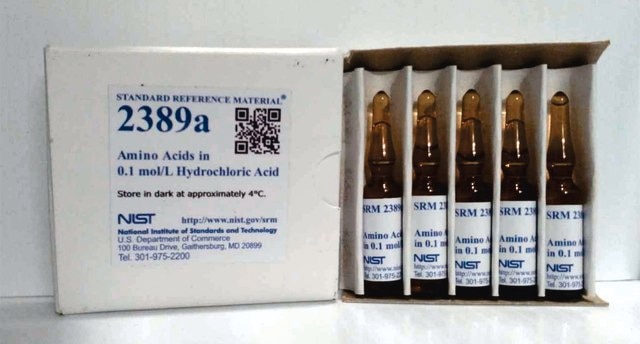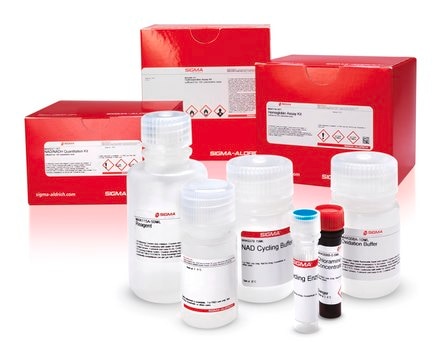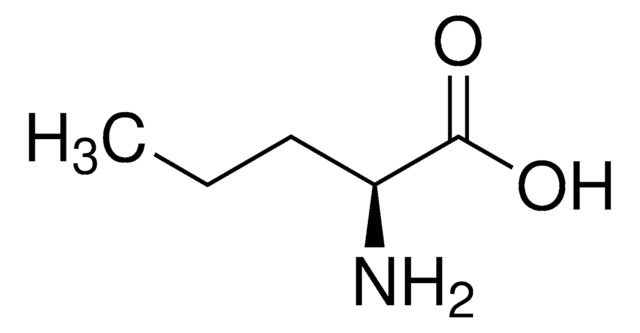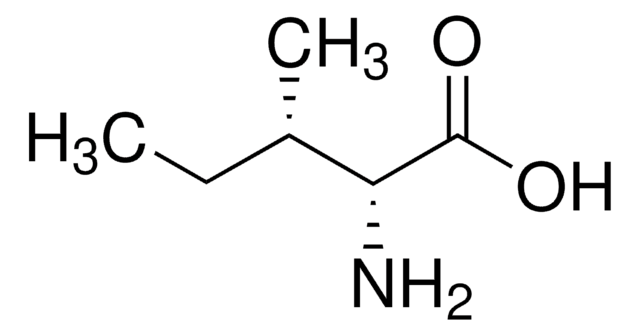A6282
Amino acid standards, physiological
analytical standard, basics
Sign Into View Organizational & Contract Pricing
All Photos(1)
About This Item
MDL number:
UNSPSC Code:
85151701
Recommended Products
grade
analytical standard
analyte chemical class(es)
amino acids, peptides, proteins
technique(s)
HPLC: suitable
gas chromatography (GC): suitable
color
colorless
application(s)
food and beverages
format
neat
storage temp.
2-8°C
Looking for similar products? Visit Product Comparison Guide
Related Categories
Application
Refer to the product′s Certificate of Analysis for more information on a suitable instrument technique. Contact Technical Service for further support.
Other Notes
Amino acids and related compounds are 2.5 μmoles per mL.
related product
Product No.
Description
Pricing
signalword
Warning
hcodes
pcodes
Hazard Classifications
Met. Corr. 1
Storage Class
8B - Non-combustible, corrosive hazardous materials
wgk_germany
nwg
flash_point_f
Not applicable
flash_point_c
Not applicable
Choose from one of the most recent versions:
Certificates of Analysis (COA)
Lot/Batch Number
Sorry, we don't have COAs for this product available online at this time.
If you need assistance, please contact Customer Support.
Already Own This Product?
Find documentation for the products that you have recently purchased in the Document Library.
Customers Also Viewed
Carolina Soares Moura et al.
PloS one, 9(1), e83437-e83437 (2014-01-28)
Whey protein hydrolysate (WPH) intake has shown to increase HSP70 expression. The aim of the present study was to investigate whether WPH intake would also influences HSP90, HSP60 and HSP25 expression, as well as associated parameters. Forty-eight male Wistar rats
Sandra Anne Banack et al.
Marine drugs, 5(4), 180-196 (2008-05-09)
Diverse species of cyanobacteria have recently been discovered to produce the neurotoxic non-protein amino acid beta-methylamino-L-alanine (BMAA). In Guam, BMAA has been studied as a possible environmental toxin in the diets of indigenous Chamorro people known to have high levels
A S Davison et al.
Molecular genetics and metabolism, 125(1-2), 135-143 (2018-07-28)
Concerns exist over hypertyrosinaemia that is observed following treatment with nitisinone. It has been suggested that tyrosine may compete with tryptophan for uptake into the central nervous system, and or inhibit tryptophan hydroxylase activity reducing serotonin production. At the National
Katharina Trunk et al.
Nature microbiology, 3(8), 920-931 (2018-07-25)
Interactions between bacterial and fungal cells shape many polymicrobial communities. Bacteria elaborate diverse strategies to interact and compete with other organisms, including the deployment of protein secretion systems. The type VI secretion system (T6SS) delivers toxic effector proteins into host eukaryotic
Rituraj Pal et al.
Nature communications, 9(1), 4351-4351 (2018-10-21)
The mechanistic target of rapamycin complex 1 (mTORC1) regulates cell survival and autophagy, and its activity is regulated by amino acid availability. Rag GTPase-GATOR1 interactions inhibit mTORC1 in the absence of amino acids, and GATOR1 release and activation of RagA/B promotes mTORC1
Our team of scientists has experience in all areas of research including Life Science, Material Science, Chemical Synthesis, Chromatography, Analytical and many others.
Contact Technical Service








